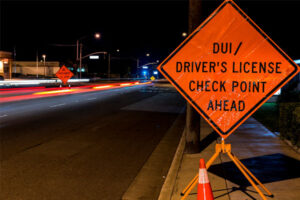Understand a DWI Conviction

Driving while intoxicated (DWI) has serious financial, legal, and social consequences. Nevertheless, the prosecutor has a lot to prove when you get arrested for a DWI. With a few tips and a strong defense, you might identify gaps in the prosecution’s evidence and convince the courts to reduce your sentence or drop your charges.
Here are practical tips that can help you beat a DWI charge.
Refuse Sobriety Tests
Field sobriety tests are not mandatory in most states, although failure to take the test can result in the suspension of your driver’s license. When you refuse the field sobriety test, the only evidence available is the police officer’s subjective interpretation of your state during the arrests.
Since an officer won’t have objective data from the sobriety tests, your attorney can easily challenge the officer’s subjective interpretation.
If you are not intoxicated and sure to pass the test, take it. The police officer will likely arrest you if you don’t take the field sobriety tests. Once you reach the police station, you may have to take the field sobriety tests. Insist on a breathalyzer test because your attorney can easily challenge the accuracy of this test.
Challenge the Validity of the DWI Blood Test
Even if the blood tests show that the alcohol concentration in your blood is above the limit, you can still challenge the result. Your lawyer must provide evidence to show that the blood tests were inaccurate and that the correct protocols were not adhered to.
For example, if the blood sample remains on the shelf for too long, bacteria and enzymes may cause the blood to decompose. The decomposition increases the amount of alcohol in the blood.
Blood testing protocols dictate that the lab technician must use the right amount of preservatives to store the blood. The storage area should also have a precise temperature. However, since the courts usually presume that law enforcement officers do accurate blood tests, the burden of proof is on you. For example, you can request the court to order a retesting of the blood sample.
Challenge the Officer’s Testimony
The courts may also consider the officer’s testimony regarding your intoxication. Some things that the officer might have observed include bloodshot eyes, slurred speech, bizarre behavior, bad driving, and the smell of alcohol. Your lawyer can seek to challenge the importance of the officer’s observations.
If witnesses were present, you could use their testimony to contradict the officer’s observations. You can also provide alternative explanations for your behavior and appearance. For example, irritants and allergies can cause bloodshot eyes.
Remain Silent to Avoid Self-Incrimination
The only information you should provide at a traffic stop is your current address, correct name, insurance details, and driving license. If you provide further details beyond this, the officer can use that information as evidence against you. Remember, no law obligates you to inform an officer about your previous whereabouts or whether you were drinking. Instead, the best strategy is to remain silent and not answer any questions.
For example, the officer might ask you if you have been consuming alcohol. They may also want to know if you have taken any medications, including lawfully prescribed drugs. Remember that some lawfully prescribed medication may interfere with your driving ability and can result in a DWI.
If you are convicted of driving under the influence of alcohol, you may pay fines and even go to jail. You might even temporarily lose your driving license. Prevent this situation by reaching out to Carl L. Britt, Jr. We provide personal injury, criminal defense, and DWI legal services. Contact us if you are facing impaired driving charges
